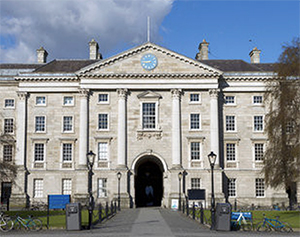In 2016 Trinity spent more than €310k buying nearly 25,000 animals and €10k to dispose of them
Nearly 110,000 animals have been used in medical research by Trinity College Dublin (TCD) in the past five years, new figures have shown. Last year alone, it spent more than €310,000 buying nearly 25,000 animals and €10,000 to dispose of them when the research was complete. Animals used in research at the university include rats, mice, pigs and rabbits.
Current regulations allow the use of animals in research only where there is no alternative method of experimentation.
The number of animals used for research at Trinity last year increased almost four-fold, prompting criticism from the Irish Anti-Vivisection Society (IAVS).
Chairperson Yvonne Smalley accused the university of having a "gung-ho" approach to animal suffering and called for stricter regulation. "The IAVS is extremely disappointed that the number of animals procured by TCD for painful animal experiments almost quadrupled to 24,990 in 2016," she said.
"TCD is supposed to be Ireland's leading academic centre, but its behaviour towards animals is stuck in the Dark Ages."
Documents released under the Freedom of Information Act show that nearly 110,000 live animals were bought by the university between 2012 and 2016 for use in biomedical research.
"Trinity College Dublin uses animals for biomedical research," said a university spokesperson. "This is in keeping with the practice of all Irish universities and leading universities worldwide.
"Animal studies are conducted only when they will contribute to the advancement of knowledge that is likely to lead to the improvement of the health and welfare of animals and human beings."
Arthritis
Research projects for which animals have been used at Trinity include studies of Alzheimer's, arthritis, multiple sclerosis and irritable bowel syndrome.
However, the IAVS claimed that scientific consensus had "moved on", with increasing recognition that experiments on animals are limited and often misleading in relation to human health.
- Darragh McDonagh


